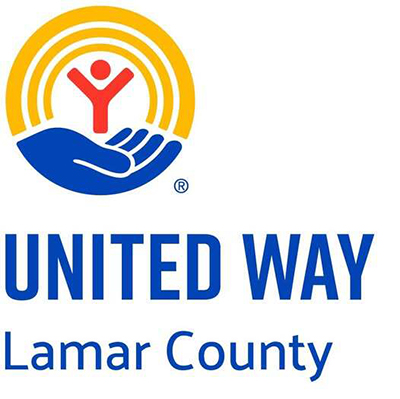The grant cycle for 2027 funding from the United Way of Lamar County will begin in April of 2026.
Important Dates
April 7, 2026 at 9am or April 8, 2026 at 1pm- Letter of Intent Meetings @ UWLC office
April 24, 2026 - Letter of Intent for 2024 and Grant Agreements Due
May 1, 2026 - Grant Applications Sent Out to Agencies
June 5, 2026 - Grant Applications Due by NOON
June 8, 2026- Citizen Review Panel Schedule Posted
June 2026 - Site Visits
July 8th & 9th, 2025- Citizen Review Panel Interviews at Home2Suites
About United Way of Lamar County’s Grant-Making Process
United Way has one funding cycle beginning in the spring of each year. The first step in the process is the Letter of Intent and to determine eligibility. Organizations found eligible will be invited to apply for a Community Investment Grant. After Community Investment Grant applications are submitted, members of the UWLC Board of Directors conduct site visits to each agency. Then a diverse group of community volunteers hear presentations by each of the applicants and evaluate them for effectiveness, efficiency and accountability. The Citizen’s Review Panel review the applications, and make recommendations to the United Way Board of Directors for approval. Monthly payments of grant awards begin in January of the following year.
Standards for Eligibility
An Agency is eligible to apply for United Way of Lamar County funding if the agency meets the following standards:
Legal Status: The applicant agency must have a 501-c-3 OR a 170-c-1 classification with the Internal Revenue Service.
By-Laws: The applicant agency must have written bylaws, which accurately describe the agency structure, mission, and operations.
Policy of Non-discrimination: The applicant agency must have adopted a policy of non-discrimination that is in compliance with all state and federal laws, and applicable to persons served, staff employment and membership on its governing board.
Board of Directors: The applicant agency must have a local Board of Directors which oversees the affairs of the organization, meets at least four times a year, keeps minutes of its meetings, and adheres to best practices for governing boards. If the governing Board of Directors is located outside of Lamar County, the agency must have a local Advisory Board that must include volunteers who represent a cross-section of Lamar County residents and meet at least four times a year with minutes of those meetings recorded.
Location of Partner Agencies: Partner Agencies shall be headquartered or have an office in Lamar County. (UWLC By-Laws 9.03)
Financial Status and Accountability: The applicant agency must be financially viable, have a charitable support record, and willingly account for all financial operations, including provision of an independent annual audit (or review or compilation) conforming to Generally Accepted Auditing Principles (GAAP).
Agency Program and Mission: The agency program and mission must provide programs and services within Lamar County. The agency must have at least one staff person, salaried or unsalaried, assigned at least half time, to conduct and/or administer the activities of the organization.
Funding Agreement: If funded, the agency will sign and abide by the terms of the United Way funding agreement, which links funding to measurable outcomes and requires semi-annual reporting.
United Way of Lamar County does not fund….
- Capital Projects
- Formal Education
- Equipment Purchases
- Lobbying
- Services which are primarily religious or political in nature.
For this purpose, “primarily religious” services are ones which promote or support a specific religion or religious cause, or ones which require as a condition of receiving service that a person belong to or actively participate in a specific religion or religious cause. “Primarily Political” services are ones which promote or support a partisan political organization or position or advocate for special interest groups. “Formal Education” includes formal instructional program conducted by faculty members of academic institution, but excludes structured activities which may be conducted in school classrooms by others.
